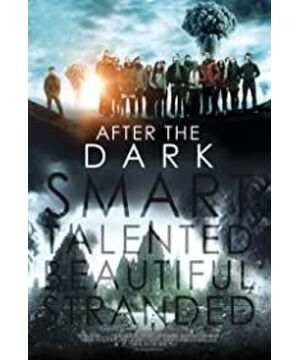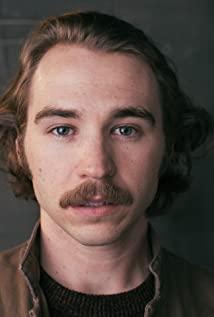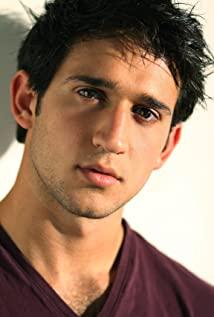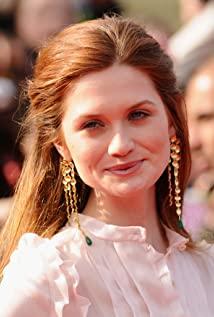Set in a classroom where a group of students are taking their last philosophy class before graduation, the film shows us the kind of thought experiment we might encounter today at a potluck or even a job search, such as:
1. Infinite Monkeys Theorem
It's a classic way of instilling the concept of "infinity". Put a monkey in front of a typewriter and let it tap the keyboard indefinitely, and if, given infinite time, it will eventually be able to type a complete, word-for-word Hamlet by random typing script. However, if it is allowed to type an accurate line of text within a certain period of time, the probability is very small. Therefore, when time reaches infinity without any limit, all events will have the possibility of actually occurring in probability.
2. The trolley problem
A runaway trolley is running at full speed towards 5 people tied to the rails, however, you can pull the switch in front of you to send the trolley to another track where only one person is tied. How will you choose? The vast majority of people will choose the sacrifice of the few in exchange for the interests of the majority. From a utilitarian perspective, this may be the most correct choice. What if we switch the situation?
Suppose there were no switches at the time, but there was a fat man standing beside the tracks, he was heavy enough to derail the tram, would you push him towards the tram? The same as the first situation, all 5 people are saved by sacrificing 1 person, but if we make the same choice as the previous situation, then the calculation behavior in our minds has caused an irreversible situation --murder.
Pulling a switch or pushing a fat man, both actions are murder. Of course, we can't say which choice is absolutely right or wrong, because the angle behind any choice can be a supporting platform for that choice to stand on its feet.
3. Ignorance is a blessing paradox
You hang from a tower in Jakarta 100 meters above the ground and call out to three friends for help. When a friend rushed over to save you, he chose to stop the rescue because he was worried that he might be dragged off when he was pulling you. In the end, you fell and didn't die. Would you choose to go back to the old days as a friend who never tested it? Choose to be ignorant or play stupid, will being friends for life make you happier?
Or choose to understand the truth and accept the reality, knowing that your friends are unreliable, even in the juncture of life and death? Then, forget about old friends and stride forward, maybe find new ones, and at the same time, it also means that you may continue to fall off other tall buildings.
The above three settings are not the most interesting. When the teacher leads the ultimate thought experiment, it reminds me of the popular tabletop game: the
background is set to the imminent doomsday, and everyone in the classroom will get a career, Through rational and logical selection of occupations, all 21 people vote to decide which 10 people can become the survivors who enter the secret base to avoid the doomsday disaster. There are still many scenarios and rules for this thought experiment, which are very interesting. Since it is a recommendation, I will not do more spoilers, and interested friends can find it.
In fact, from the perspective of the whole film, it conveys a lot of information to us, such as:
1. Is rationality or emotion driving the evolution of the world?
I think there is no answer in the play. From the perspective of the game effect, the consequences of rationality and emotion are facing the destruction of the group.
2. Is it a profession or a person who plays a bigger role in the doomsday community?
The plot has answered the important role of occupation in the doomsday group. Whether from a rational and emotional point of view, the role of occupation shines in the group's choice and pursuit of universal values. The difference is that in a certain group Time to answer the advantages of the profession, it does not mean that any existing profession has no value.
And a person's role in the doomsday group transcends occupational limitations, the film has explained. First of all, if the doomsday comes, compared to survival and reproduction, the probability of choosing the latter is higher. For the doomsday group that bears the heavy responsibility of reproduction, the individual's genetic advantage, health index, IQ index, personality temperament, fertility, etc. The comprehensive indicators will be more evidence that a person's role in the doomsday group is greater than that of an occupation.
3. Philosophy is to reality like masturbation is to sex
. The answer given in a movie is obvious. When I first watched it, because of the large amount of information in the plot and a lot of thinking, I couldn't figure out what this sentence wanted to express. clues of meaning. However, after roughly sorting out my thoughts, I came up with an explanation, just a personal opinion. At the beginning of the movie, the male protagonist is late for class. The teacher talks about Shakespeare's famous saying about punctuality: "It is better to be three minutes early than one minute late." The female protagonist has already told us the answer later: "For lonely people, being punctual It’s not a virtue, is it?”
Uselessness: When there is a love object, the probability of choosing to solve it by yourself is not large, so it is useless; just like in a lonely life, punctuality is useless.
Usefulness theory: When there is a love object, the low probability of choosing to solve it by yourself still exists, just like when you live alone, you can also choose to be punctual.
Intermediate theory: When love cannot happen at all the moments of need, self-solving becomes a necessary way; when people do not always live in loneliness, the emergence of groups increases the importance of punctuality.
It is a personal perspective and choice to look at "philosophy" alone, or place "philosophy" in "reality".
4. What does the plot reversal at the end of class want to convey?
I think its meaning is related to the meaning of doomsday games, revealing the unknown and leading us out of the dark. Just like the message of love expressed in inversion, no matter what form it takes, or whether it is accepted or not, it is some form of love. My understanding is that love is always the unknown thing that leads us to the light. Its ephemeral and invisible nature allows those who pursue it to continue to create and move forward.
This plot reversal, I saw a bowl of chicken soup, drink it or not, feel free.
5. What do you want to say in the end when the teacher is alone?
I just want to quote from Shakespeare's Hamlet: "To live or to perish, this is a question worth thinking about. To endure the poisonous arrows of fate's tyranny in silence, or to stand up against the boundless sufferings of this world and sweep them away through struggle. , which of these two acts is more noble? Dead, asleep, everything is over."
Shakespeare and his work "Hamlet" run through the whole play. Perhaps this is the director's recognition of the profound influence of the master and his works in the field of philosophy, and the guidance issued to the audience. Do we need philosophy? There is no exact answer to this question, but we want to. To understand friends of philosophy, you can start with Shakespeare and his book Hamlet.
The above are my personal feelings and thoughts about the film.
View more about After the Dark reviews











